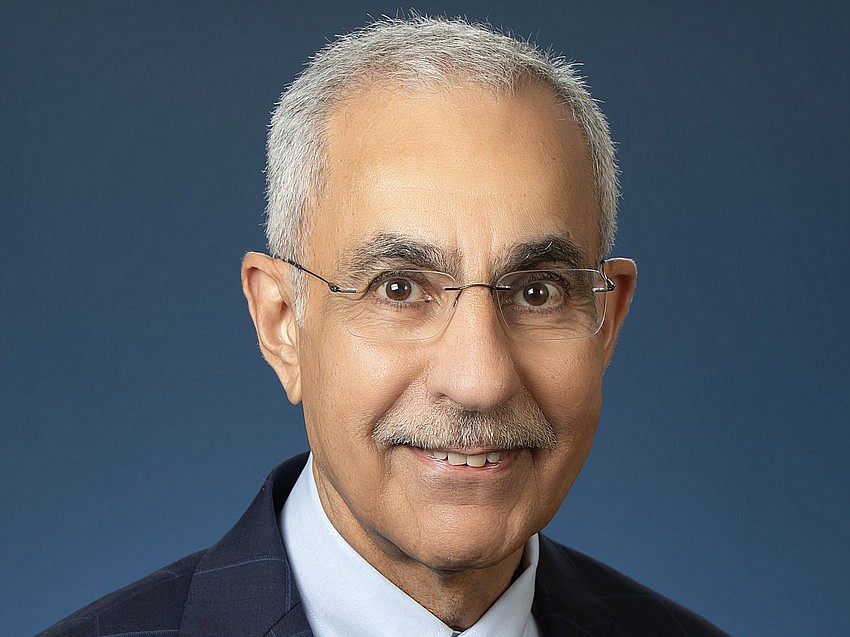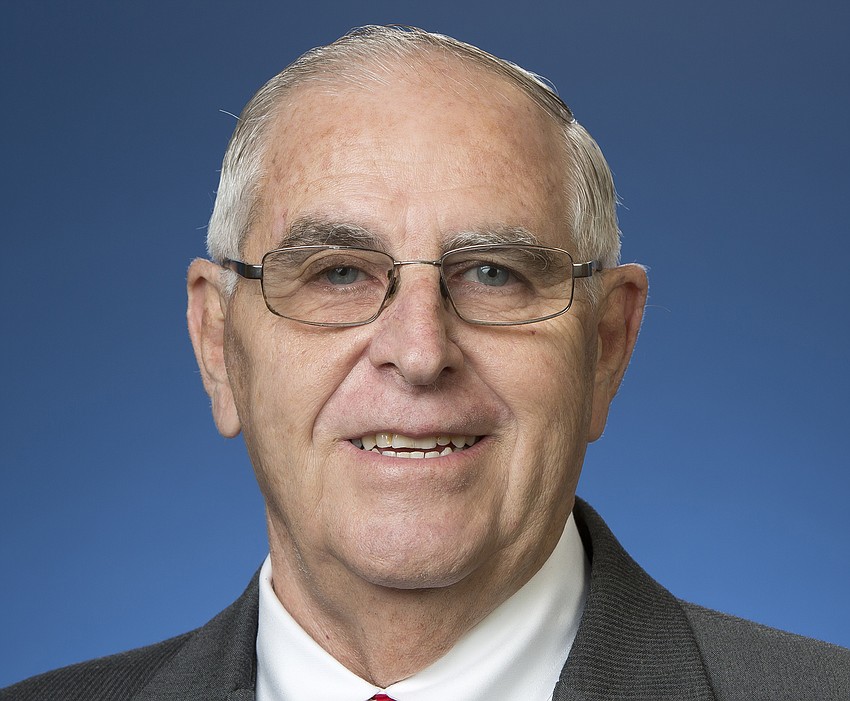
The proposed “Stadium of the Future” deal between the city and the Jacksonville Jaguars remains on track for a June 25 final vote after City Council members met June 21 to fine-tune and add provisions, including a requirement to use local labor and materials in construction of the $1.4 billion facility.
In the last scheduled meeting before final consideration, Council approved a number of technical revisions and text clean-ups along with amendments on management, construction, insurance and other aspects of the agreement.
Council voted 12-0 to advance the amended version of the legislation containing the stadium deal, Ordinance 2024-0904, to the June 25 vote. Members Ju’Coby Pittman, Kevin Carrico and Reggie Gaffney Jr. abstained, citing conflicts of interest. Members Michael Boylan, Rory Diamond and Chris Miller were absent from the vote.

Council President Ron Salem called the outcome “very satisfying.”
“I thought the amendments were good, and clarified some things,” he said. “I think we’re in a good posture now where we can vote on it Tuesday night as I’d hoped to do several weeks ago.”
Jaguars President Mark Lamping was similarly upbeat.
“This is not only exciting if you’re a Jaguar fan, but if you’re a fan of Jacksonville this is great,” he said.
Lamping said he was optimistic that the finalized deal would receive approval from NFL owners, who must OK it by a two-thirds majority for the project to move forward.
“We’ve been keeping them up to speed as these negotiations have unfolded,” he said. “There have been questions that we haven’t been able to answer, but we’re very confident that we’ll be able to get it across the finish line.”
Shaping the deal
The basic terms of the deal haven’t changed. The city and team will each contribute $625 million in construction costs of remaking EverBank Stadium with such features as a roof cover that will protect all seating areas from sun and rainfall, an elevated concourse, a design that will allow airflow through openings at the corners, new food and beverage concessions, a park-like entrance and more.
In addition, the city will provide $150 million for deferred maintenance and capital improvements to prepare the stadium for the project and allow the Jaguars to play in the facility during the 2025 and 2026 seasons after construction begins.
The amended version of the ordinance includes $56 million in city funding for development of riverfront parks and improvements to the flex field adjacent to the stadium.
That funding was originally part of a community benefits agreement that included an additional $94 million for workforce development, affordable housing and homelessness services in the Eastside neighborhood and countywide. Council voted June 20 to split out that portion of the funding and consider it as a separate piece of legislation beginning in July.

During the June 21 meeting, amendments approved included a requirement for 10% of the tradework involved in stadium construction to be performed by members of registered and certified apprenticeship programs. That amendment was proposed by members Mike Gay and Tyrona Clark-Murray.
An amendment from Vice President Randy White and member Rahman Johnson would require City Council approval if the team chooses to hire a third-party company to manage the stadium. Under the agreement, the Jaguars are responsible for managing the facility but have the option of contracting with an outside company.
In addition, an amendment from Salem specifies that insurance costs for the stadium will be shouldered by the city through its policy on its major properties and will not be paid for, as originally designed, through an operations fund to which both the city and team will contribute. The change was requested by city officials. Mike Weinstein, the lead negotiator for Mayor Donna Deegan’s administration, said advisers told the city that including the stadium with all of its properties would be in the city’s best interest.
In an amendment proposed by Johnson, the Jaguars will explore holding an annual game involving Historically Black Colleges and Universities teams at the new stadium.
One change fails
Not all the suggested changes were approved.
Council rejected a proposal by Gay to give the city authority to reject “preference” items in the design, such as the roof cover. Gay said he did not believe the cover was essential for stadium operations and could possibly be removed from the design or replaced by a partial cover at less expense.
“Wanting to get optional pricing, I think, is fair for our citizens,” he said. “I’d like to have all these items put on the table where we can actually make a decision to be a good steward to our taxpayers in the city.”

Lamping said the cover was needed not only for fan comfort but to reduce heat-related health problems among spectators during early season daytime games. At one September 2023 game, medical crews treated 110 people and transported 36 to hospitals due to heat issues.
Lamping said the team had explored incorporating a partial roof shade similar to the one at the Miami Hard Rock Stadium, the home of the NFL’s Dolphins, but discovered that it would leave 65% of the seating area exposed.
A cover also would make the stadium more attractive as a concert venue and site for events such as the college football playoffs, he said.
Council member Jimmy Peluso said he had frequently watched games from lower-bowl seats.
“I can tell you, it’s hot as hell,” he said. “I was next to people who passed out at games. It truly is a health risk.”
Gay’s amendment was defeated on a voice vote.
What’s next
The June 25 Council meeting at City Hall is scheduled to begin at 3 p.m., two hours earlier than the usual start time.
Salem said that from 3 p.m. to 5 p.m., Council members will not discuss the stadium but instead will handle such routine items as announcements and presentations, legislation having its third and final readings and quasi-judicial matters not involving public hearings. The regular public comment session, in which speakers can address any city-related topic, will be held during that time.
Salem said Ordinance 2024-0904 would be the last item on the agenda to ensure that residents could speak to it.
Council members will have the opportunity to propose amendments to the ordinance at that time. Salem said he started the meeting early and arranged the schedule to provide extra time for final Council discussions and for residents to comment on the agreement.
“The request to begin the meeting earlier stems from a desire to ensure members of the public can speak on matters, including the Stadium legislation, before the Council,” he said in a June 21 news release. “Many members of the public have left the meeting by the time we get to third reading ordinances, and I’m hopeful this will allow the items to be discussed earlier in the evening before our constituents return to their homes.”
Under a Council schedule discussed during the June 20 and June 21 meetings, legislation on the $94 million in community benefits for the Eastside and countywide would be introduced during the July 23 Council meeting. That is the first meeting scheduled after Council’s annual summer break, the first two weeks of July.

White recommended culling out the benefits funding after it drew concerns from several Council members over how it would be spent and how the city would pay for it amid looming financial commitments such as completion grants for economic development projects, construction of a new jail and obligations for police and fire pensions.
The benefits agreement also yielded conflicts of interest for some Council members whose work involves helping the homeless or providing job training and career development services.

In separating out the funding, White and Salem said the goal was to allow the maximum number of Council members to vote on the bulk of the stadium deal. White will become the next Council president beginning in July.
During the June 21 meeting, after the funding was removed, four members abstained from voting after citing conflicts. They were Pittman, Gaffney, Carrico and Terrance Freeman.
Asked about the abstentions, Salem said the city Office of General Counsel had advised the members not to vote and that it was possible those members would abstain in the final vote.
While stating reluctance to disclose details about the conflict, he said some members work for organizations that provide services at city parks. Funding for Riverfront Plaza, Shipyards West Park and Metropolitan Park remains part of the ordinance.
“I think it’s really a shame that we’ve got Council members that can’t vote on such historic legislation, but that’s just the reality,” he said.
Darnell Smith, Deegan’s chief of staff, reiterated to Council members that the Deegan administration expected them to follow through on the community benefits part of the stadium deal.
“We are focusing on getting the entire CBA across,” he said. “Approving the parks component is not approving the entire CBA.“